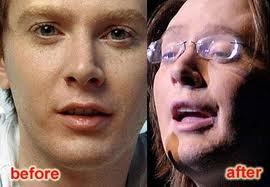People who elect to have surgery for cosmetic reasons are not, for the most part, rich and famous. Many will have spent a long time saving for their chosen procedure, or even taken out high-interest loans to pay for it. So if something goes wrong with their surgery, it’s not just the physical outcome that can cause distress – the financial impact of such a result can be devastating too.
If you are one of the unlucky minority who have undertaken cosmetic surgery and it has not turned out the way you expected, what – if anything – can you do about it?
Medical or Aesthetic?
This will depend, to some degree, on the nature of your complaint. Is it an immediate cause for medical concern or is it more about being unhappy with the results? All surgery comes with a degree of risk and of possible outcomes. It’s important that your doctor explained this to you at the outset; they should also have discussed the potential and likely aesthetic outcomes with you.
If you are left with a health problem, such as suspected infection or an open wound, then you need to return to your surgeon as soon as possible or even to your GP or local A&E, depending on the nature of the complaint.
Aftercare
Plastic surgery clinics should have an aftercare facility in place which will allow you to discuss any concerns. If the surgeon is able to tend to the problem, for example an infection has arisen after surgery, they will offer this to you at no extra cost. If you have the problem resolved and you are satisfied then all is well. If you have the problem fixed elsewhere but think the doctor may have been at fault then you may wish to pursue litigation (see below).
If your complaint is an aesthetic one you will certainly need to return to your doctor in the first instance. You will also have to be able to honestly take in to account what was promised at the outset against what was achieved. It’s also a good idea to wait for the healing to subside before you can make final judgements on your appearance.
It may be that your surgeon will agree to make some fixes for you – if they agree that the end results are far from what was expected or advised. They are not obliged to fix it on simply aesthetic grounds. If, for example, you have undergone breast enhancement surgery with a reputable clinic, who have performed the surgery safely and competently, but you don’t feel you have the size you asked for, your surgeon may rectify this if they agree – but not if they don’t.
In either case make sure you document any verbal communication with a follow up email, so that you have a written copy of every stage of the process.
Taking it Further
If it’s the case that you were promised something that has not been achieved then you will have to discuss with the clinic’s aftercare team and, if they decide they are not obliged to correct the surgery, then you will be able to make a complaint. At this stage you may wish to take this further. As well as being a patient you are also a consumer and as such have to prove that ‘reasonable care and skill’ was not used when you purchased the product, ie the surgery.
If you feel you can then you may be able to claim for compensation for medical negligence or malpractice, in which case you will need to engage a solicitor, preferably an indvidual or firm that specialises in cosmetic surgery. They will be able to advise whether you have a strong case or not. If you needed to resort to corrective surgery at another clinic then this will be factored in to the compensation, should you be eligible for it.
by Dani Porter. Dani is a freelance writer who specialises in the beauty industry, in particular aesthetic surgery and procedures.

